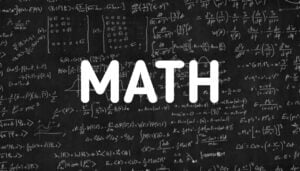
21MATCS41
Module - 1
Fundamentals of Logic: Basic connectives and truth tables, Logical equivalence – The laws of Logic, Logical implication – Rules of Inference. Fundamentals of Logic contd.: The Use of Quantifiers, Quantifiers, Definitions, and the Proofs of Theorems.
Self-study: Problems on Logical equivalence.
Module - 2
Relations and Functions: Cartesian Products and Relations, Functions – Plain and One-to-One, Onto Functions. Function Composition, and Inverse Functions.
Relations: Properties of Relations, Computer Recognition – Zero-One Matrices and Directed Graphs, Partial Orders – Hasse Diagrams, Equivalence Relations and Partitions.
Introduction to Graph Theory: Definitions and Examples, Subgraphs, Complements, and Graph Isomorphism, Vertex Degree, Euler Trails and Circuits.
Module - 3
Statistical Methods: Correlation and regression-Karl Pearson’s coefficient of correlation and rank correlation-problems. Regression analysis- lines of regression -problems.
Curve Fitting: Curve fitting by the method of least squares- fitting the curves of the form-
y=ax + b, y = axb and y = ax? + bx + c
Module - 4
Probability Distributions: Review of basic probability theory. Random variables (discrete and continuous), probability mass and density functions. Mathematical expectation, mean and variance. Binomial, Poisson and normal distributions- problems (derivations for mean and standard deviation for Binomial and Poisson distributions only)-Illustrative examples.
Module - 5
Joint probability distribution: Joint Probability distribution for two discrete random variables, expectation, covariance and correlation.
Sampling Theory: Introduction to sampling distributions, standard error, Type-I and Type-Il errors. Test of hypothesis for means, student’s t-distribution, Chi-square distribution as a test of goodness of fit.